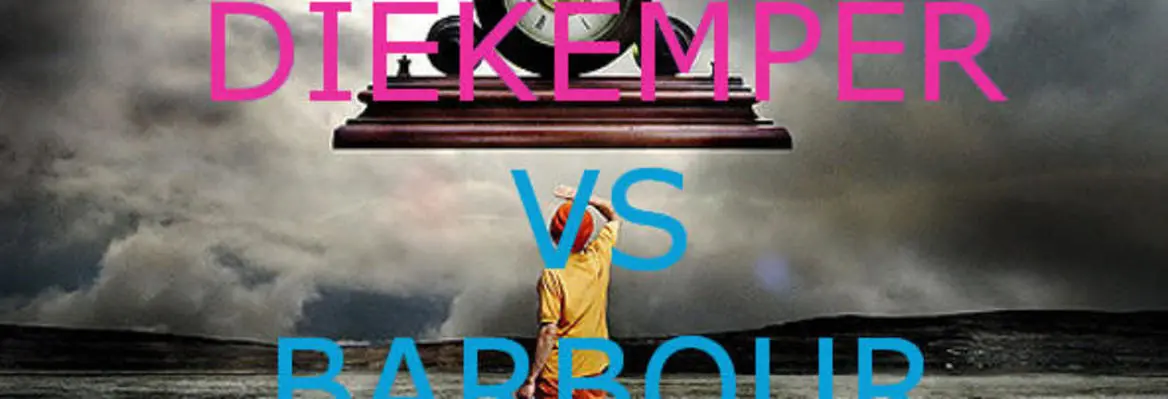Read part 1: Joseph Diekemper argues that the present is only a border between past and future.
Read part 2: Julian Barbour replies that arguing over past and future is to miss what really matters.
Read part 3: Diekemper underlines the necessity of philosophy to our understanding of time.
Read part 4: Barbour disagrees: science will ultimately always take precedence over philosophy.
___
I am grateful to Julian Barbour for his response to my article, The Dance of Time. In this brief counter response, I will make a general observation followed by two specific points.
I think a very clear observation emerges from what Barbour says: given the complexities of the concept of time, and given that current scientific data underdetermine the nature of time, one must rely on philosophical argumentation – at some stage – in deciding how to fill out the details of the concept. It is another matter, of course, whether science could, in principle, ever be complete enough to fully determine the nature of time. Notwithstanding the wondrous discoveries of modern science, and the marvellous prospects for future discoveries, I suspect that I am rather more sceptical of that possibility than is Barbour.
As for the specific points, I would first like to respond to Barbour’s discussion of the meaning of “the passage of time”. He is quite right to point out that this phrase cries out for explanation. It is, after all, a metaphor, and metaphors bring more confusion than clarity in any theoretical discussion of the nature of time. Indeed, I made this same point during the Dance of Time debate on IAI TV. Still, we need to distinguish between pre-theoretical notions, such as the experience of the passage of time, which can provide the starting point for our theorising; and the fully worked out theory that eventually results. Given the view of time that I adumbrated in the article, my definition of the passage of time would be stated in terms of events having occurred. And since I think events are fundamentally changes, I agree with Barbour that the experience of temporal passage should be stated in terms of change; but that is a view that comes out of my theorising about time, and therefore would not have been a legitimate starting point for me.
Secondly, Barbour states that he “incline[s] to the view that one should consider all instants of time – Nows as I call them – on an equal footing as regards existence”. This entails that the change which we both take to be fundamental to our experience of time is illusory and non-existent. There is no real change on his view, there are just three-dimensional slices – the Nows – eternally coexisting, and these never change. If this view – which is not entailed by current scientific knowledge – were correct, then every aspect of our experience of the world would be pervaded by illusion. It would not simply be a case of our being susceptible to illusion under certain circumstances, rather, all experience would be illusory and deeply mistaken. And that is an idea which, emotionally, I do not like!
___
Read part 1: Joseph Diekemper argues that the present is only a border between past and future.
Read part 2: Julian Barbour replies that arguing over past and future is to miss what really matters.
Read part 3: Diekemper underlines the necessity of philosophy to our understanding of time.
Read part 4: Barbour disagrees: science will ultimately always take precedence over philosophy.















Join the conversation